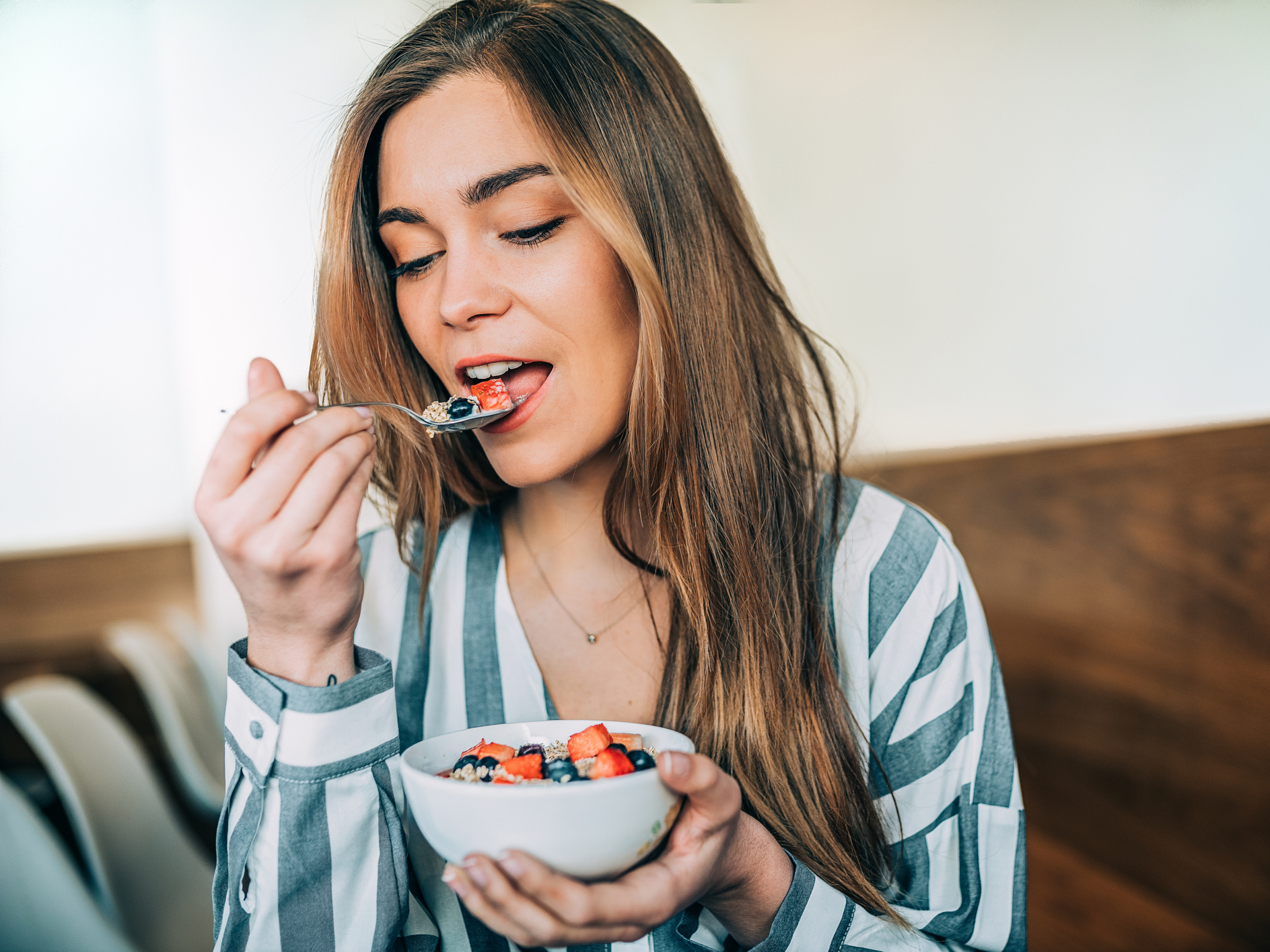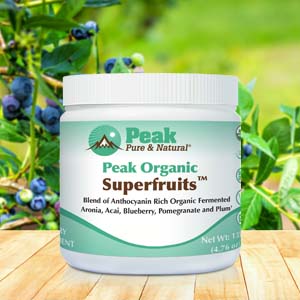Get Easy Health Digest™ in your inbox and don’t miss a thing when you subscribe today. Plus, get the free bonus report, Mother Nature’s Tips, Tricks and Remedies for Cholesterol, Blood Pressure & Blood Sugar as my way of saying welcome to the community!
What to eat for better skin

When I ask my patients what goal they have for their health, most say they want to feel — and look — better.
People who feel better naturally look better.
But are there foods you should be consuming to directly improve the appearance of your skin?
The answer is… yes!
Your skin needs nutrition to thrive
Your skin is actually the single largest organ in your body. In fact, the average adult has approximately 21 square feet of skin, which weighs 9 pounds and contains more than 11 miles of blood vessels.
And just like our heart, it needs the right nutrients to function and look its best.
According to dermatologists, the nutrients that are important for glowing skin include healthy fats and antioxidants, like these…
Essential free fatty acids — like omega-3s — are important in keeping the skin barrier intact because they’re used in the formation of skin cells.
Since your body can’t make omega-3s from scratch, it’s important we get them through your diet.
Related: 4 ways to boost collagen and love the skin you’re in
Omega-3s come in 3 forms – ALA, EPA, and DHA. ALA comes from plants (like chia, flax, and walnuts) while EPA and DHA come from fatty fish (like salmon and sardines). Interestingly, EPA and DHA can be made from ALA — but not the other way around, making ALA the only truly essential fatty acid of the three.
Walnuts are not only a good source of omega-3s, but they are also loaded with copper, a mineral that boosts collagen production. Dermatologists suggest eating walnuts regularly to improve your complexion’s texture.
Lycopene is an antioxidant found in tomatoes and acts as a powerful protectant against sunburn. In fact, a study has demonstrated that people who consumed tomatoes daily showed 33% more protection against sunburn than those that did not. Bring on the tomatoes — especially since they’re currently in peak season!
Cocoa hydrates skin, helping to make it fuller and more supple, and dark chocolate is also full of flavonols, which are potent antioxidants.
According to dermatologists, eating a couple of squares of 70% cacao chocolate (like that found in Step One Foods) is enough to improve skin luminosity. By the way, the caffeine in chocolate, when applied topically, can help reduce puffiness.
Speaking of topical applications…
Polyphenols, naturally found in green tea, fruit, and wine is a group of anti-inflammatory antioxidants. Applying polyphenols topically has been shown to help tone skin, treat acne and diminish the appearance of fine lines and scars. Green tea masks and serums are one way to gain the benefits of polyphenols immediately.
Vitamins A, C, and D are also essential to skin health. Vitamin A stimulates fibroblasts, which are the cells that are responsible for keeping skin firm and healthy. Tuna, various dairy products, and salmon are rich in Vitamin A. Vitamin C and Vitamin D promote collagen synthesis, protect your skin from UV damage and contribute to skin cell growth, repair, and metabolism. Vitamin C is found in fruits and vegetables (another reason to follow a whole food, plant-based diet!) but vitamin D is difficult to find in food. Checking to see if you are deficient in this vitamin and supplementing as needed makes sense.
No question about it, a healthy diet promotes healthy skin. Which is why it’s important to make sure that your diet is balanced and includes plenty of omega-3 fatty acids, antioxidants, and essential vitamins like vitamins A, C, and D.
Integrating these nutrients into your diet won’t only help your skin, but your overall health, too. If you find it too difficult to incorporate certain foods into your diet, remember: all Step One Foods are rich in omega-3 and antioxidants, and all contain walnuts. Two servings a day for a healthy heart AND skin.
Editor’s note: Regain your health and enjoy a full, vibrant life by defeating the real culprits of premature aging and sickness — excessive, damaging acid in your body! The truth is when you’re alkaline, wellness thrives and sickness takes a dive. Click here to discover The Alkaline Secret to Ultimate Vitality!
Sources:
- Skin Fun Facts — Forefront Dermatology
- 10 Foods That Are Good for Your Skin — Shape Magazine














